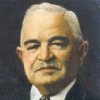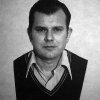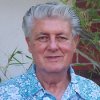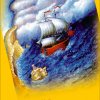Vaso Ćuković
Vaso Ćuković je rođen u Risnu, 09. jula 1858. g. od oca Lazara i majke Stane, u uglednoj trgovačkoj porodici, sa osmoro djece. Volio je školu, kao mlad pomagao ocu u trgovinu, i izučio zanat u Risnu, ali, nemirrnog duha, već sa 12 godina je otputovao kod tetka u Trst, koji je takođe bio trgovac U Trstu je završio višu trgovačku školu i odlično savladao grčki i italijanski jezik. Sa 16 godina se zaposlio u, tada poznatoj, grčkoj firmi "Hydias" kao činovnik. 1877. godine je, na nagovor jednog pomorskog kapetana iz Risna, kojeg je sreo u Trstu, otplovio za daleku Ameriku. Prvo u Njujork, pa San Francisko gdje je imao namjeru da se bavi trgovinom. U početku je to išlo veoma teško. Radeći svakojake poslove, učeći jezik , put ga je odveo u Nevadu, grad Reno, gdje mu je živio rođak, koji ga je pomogao sa 100 USD, što mu je bilo dovoljno, da započne samostalo, malu trgovinu. Ni tu nije uspio. U gradu Virginia Sity je radio kao prevodilac. U Virginiji, Neveda, je pokušao da radi sa rudnicima, bezuspješno, a radio je poslove čistača u jednoj bilijarnici, gdje se i upoznao sa kockarskim igrama. Lutalačka težnja ga odvodi na kratko na Aljasku, a konačno, 1895. g. stiže je u Denver, Colorado. Tu kupuje zemlju, nastavlja trgovinu, otvara tada poznate kockarnice i za kratko vrijeme stiče veći kapital. Zahvaljujući svojim sposobnostima i inteligenciji Vaso Ćuković postaje u to vrijeme jedan od najuglednijih i najuticajnijih ličnosti grada Denvera. Žrtvujući svoja materijalna sredstva učestvuje u izgradnji i uljepšavanju grada, pomaže razne humane akcije i učestvuje u javnom i političkom životu.
.




